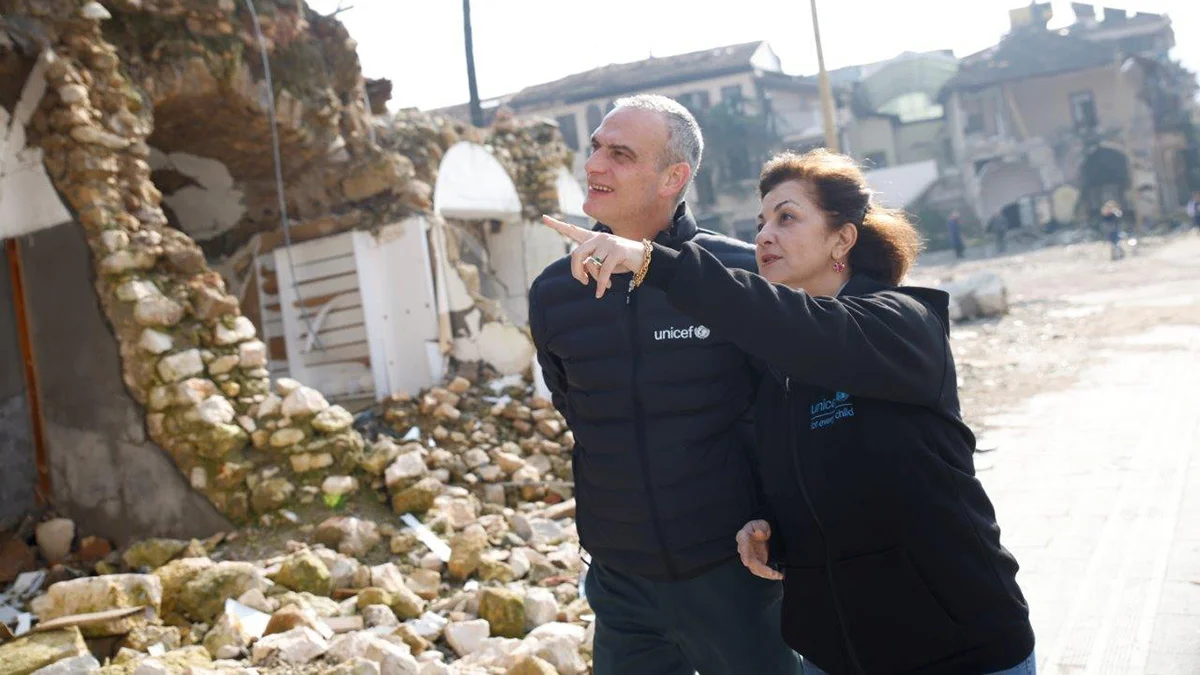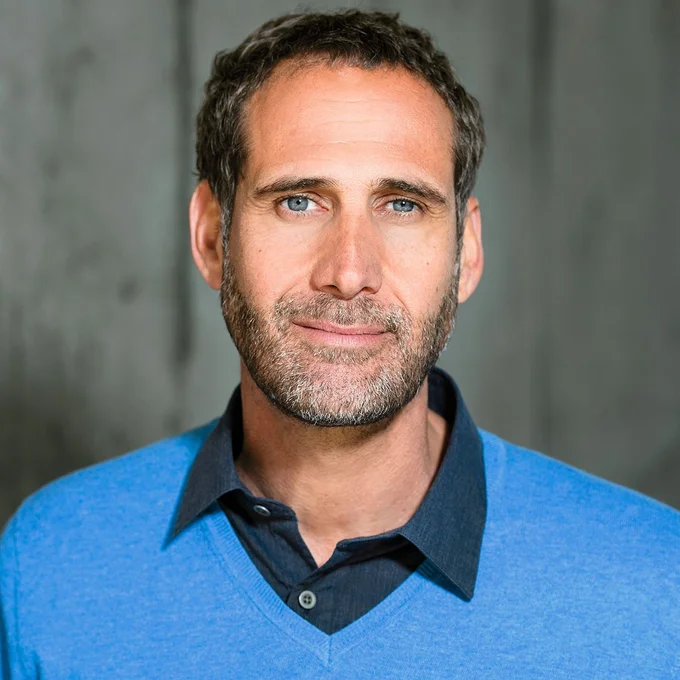One year after the devastating earthquake on the Turkish-Syrian border, more than ten million children are still in urgent need of humanitarian aid. UNICEF Goodwill Ambassador Anatole Taubman visited the region to learn more about the current situation for the children and about UNICEF’s work there.
During the night of February 6, 2023, the earth shook in southern Türkiye near the Syrian border. Several strong earthquakes occurred in an area of about 15,000 square kilometers, destroying countless homes and important infrastructure like schools and hospitals. The region also experienced more than 30,000 aftershocks. The quakes have affected the lives of hundreds of thousands of people.
UNICEF is on the ground in these provinces, providing assistance. Children and families in temporary shelters urgently need help – especially during the bitterly cold winter months. UNICEF distributes critical emergency supplies like blankets, winter clothing and hygiene kits, as well as safe drinking water and access to sanitary facilities. UNICEF also provides safe, long-term access to health services through both stationary and mobile health clinics.
In late January 2024, UNICEF Goodwill Ambassador Anatole Taubman visited several programs in the affected region. He was able to get an idea of the work UNICEF is doing and speak with the local children.
“What I saw there left me deeply moved,” said Anatole Taubman after his visit to the Turkish-Syrian border. “Especially the young people who, despite their situation, continue to work toward their future, and the helpers there on the ground who are fighting every day to keep children and young people safe.”
The earthquake didn’t just destroy buildings, it also had enormous impacts on the psychological health of the people affected by it. Many children are experiencing anxiety, loss and grief. Together with its partner organizations, UNICEF offers psychosocial support through various programs to get these children quick and effective help. Through play in temporary shelters and child friendly spaces, the children can learn how to express their feelings and emotions, and better process their traumatic experiences At the Turkish-Syrian border, UNICEF has helped 1.5 million children work through their trauma.
Anatole Taubman visited temporary shelters where UNICEF offers psychosocial support for children, young people and young adults. Through various age-appropriate activities, they learn to express their feelings and emotions, hone their abilities and work through their experiences. “UNICEF is providing lifesaving aid to these children and young people who have lost everything. UNICEF gives them access to hygiene (in the form of water and sanitary facilities), security and structure. I could see that absolutely everything is getting to where it is needed most.”







